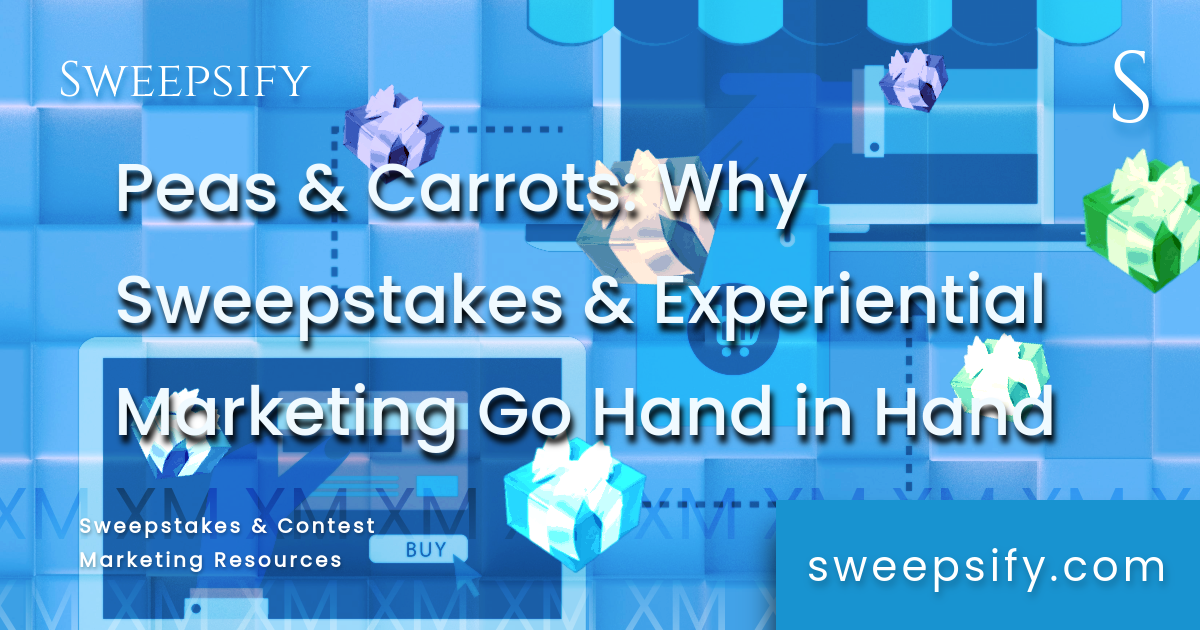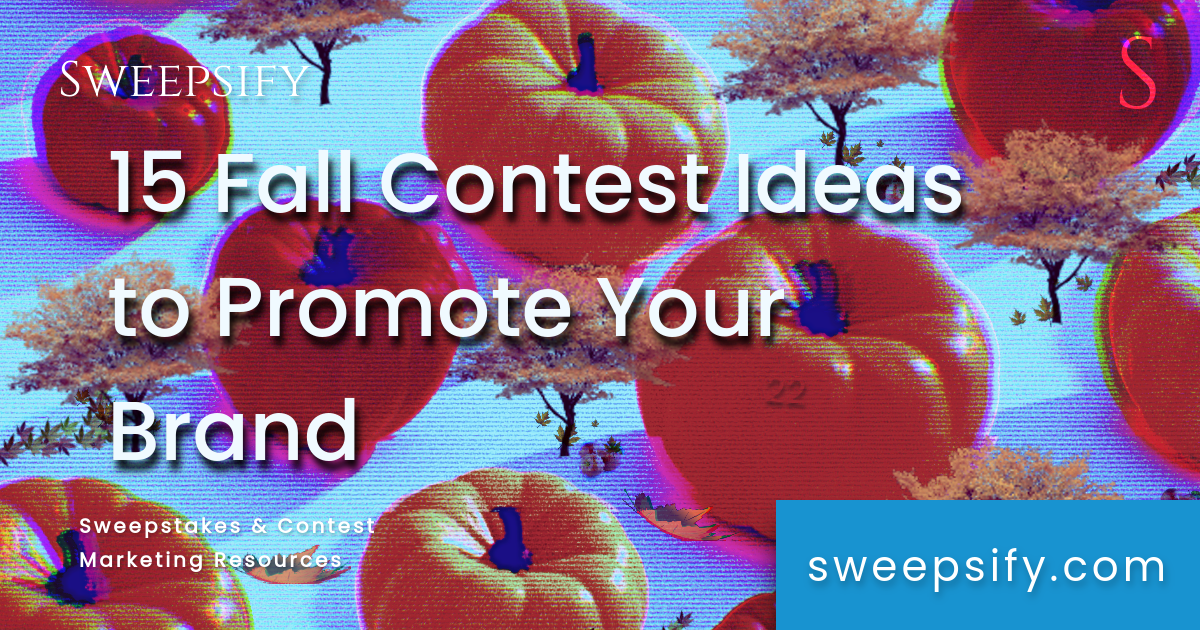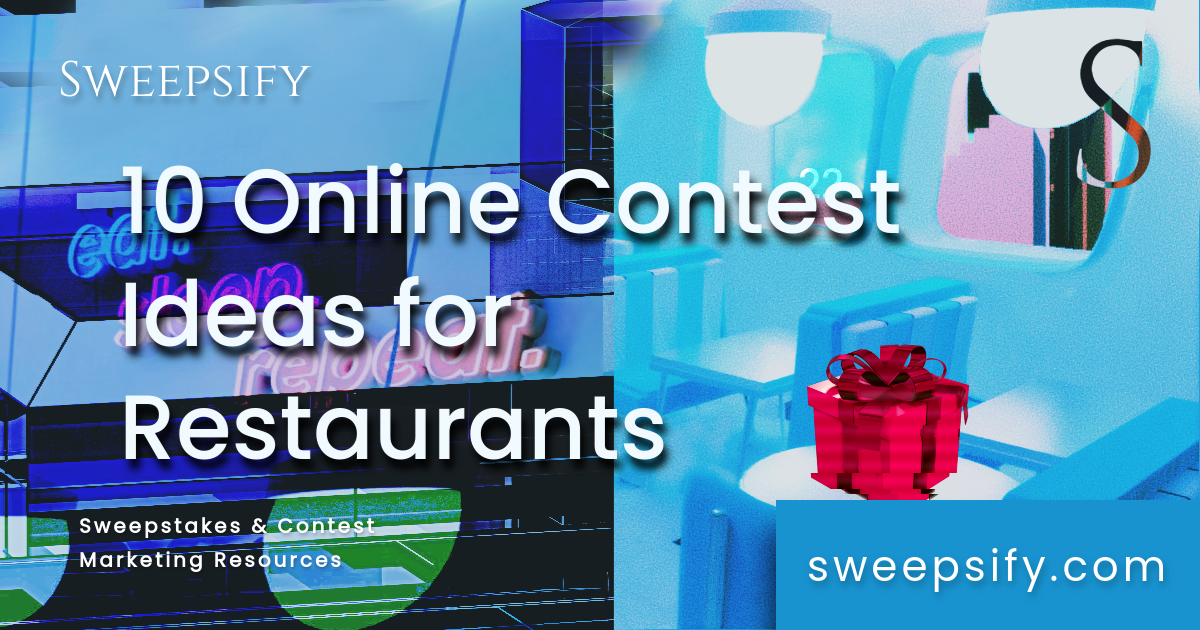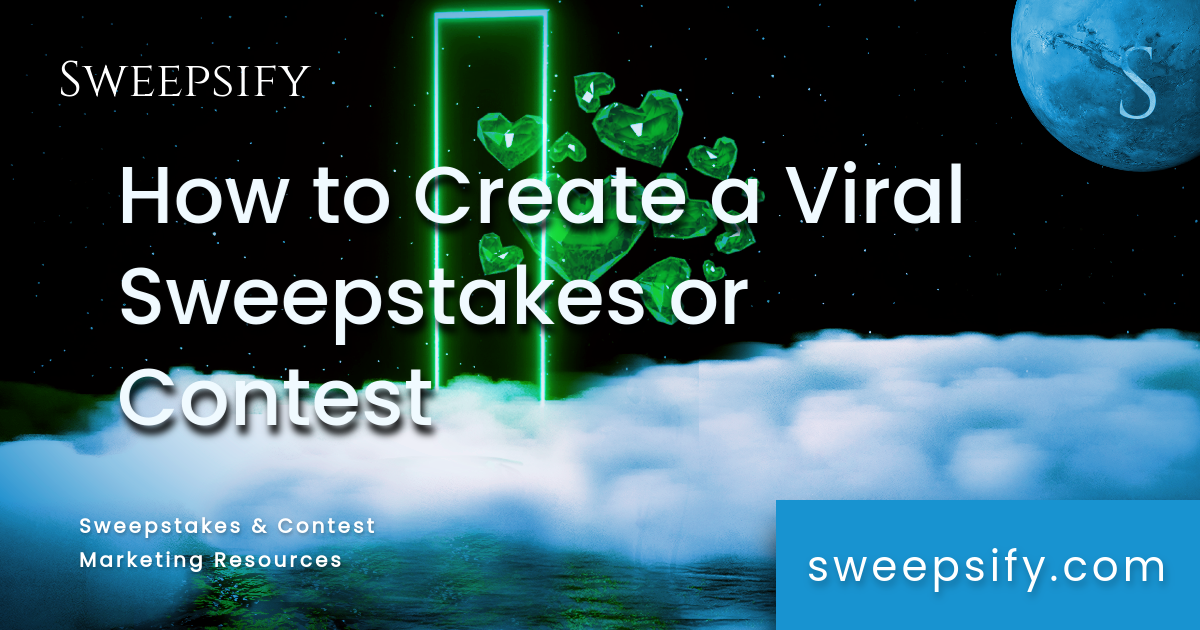Here is a list of our current affiliate partners and how we earn money
More than ever consumers crave authentic offline experiences with brands, which is why experiential marketing is becoming increasingly important. Brand marketers who run sweepstakes and contests can deliver experiential marketing as sweepstakes prizes. This is the best way to maximize reach for your sweepstakes or contest while also initiating a new and creative way to engage your fans and customers in a physical space.
via GIPHY
Successful Experiential Marketing for Sweepstakes, Contests Drives ROI
When it comes to repositioning a brand or launching a new product, customer experience is critical. You have just one opportunity to connect with your audience. In fact, a McKinsey study found that 70% of the customer’s journey is based on how the customer feels that they are being treated. A strategy featuring a sweepstakes or contests with an offline event as the sweepstakes prize, can be highly successful at boosting customer experience KPIs with just a single campaign.
Read on to learn about experiential marketing for sweepstakes, contests, and giveaways, why experiential marketing is important for brands, and examples of experiential marketing as sweepstakes prizes.
Let’s go! 🚀
Article Contents
IN THIS ARTICLE:
- What is experiential marketing for giveaways?
- What are the different types of experiential marketing?
- What are some examples of experiential marketing?
Experiential marketing involves a wide range of martech, advertising, event planning tools, and channels to create an immersive offline experience for consumers. Experiential marketers may utilize live streaming, QR codes, metaverse and web 3.0 apps, brand partnerships, popup shops, and more as part of an offline event.
via GIPHY
The Benefits of Experiential Marketing for Brands
Brands benefit tremendously from successful experiences. These are the ways that experiential marketing benefits brands:
Develop Meaningful Connections With Your Audience
According to Khoros, 74% of consumers say that they have a better opinion of a brand after engaging with an experiential marketing campaign. As a result, brands can no longer rely on traditional marketing alone to deliver the best customer experience. To develop meaningful connections with their audience, today’s top brands use experiential marketing which is offline and interactive.
Interactive marketing is more engaging and attractive to today’s consumers than traditional marketing alone. For the most part, traditional marketing is not customer-centric when it comes to UX. Instead traditional marketing UX design focuses on making data collection faster and easier for brands. On the other hand, consumers find it easy to trust brands that use experiential marketing because they humanize the brand and bring it into their dailly lives.

Increased Brand Awareness
A sweepstakes, contest or raffle can help a brand go viral. But using experiential marketing as well, can help you reach new audiences. Other than social media shares of your branded content and sweepstakes UGC, people will also talk among themselves about the unique experience they had with your brand. This free offline word of mouth marketing is immensely valuable for your brand. It can help to alter consumer perceptions and behaviors with regard to your brand if the goal of your strategy is rebranding or repositioning.
Influencers Aren’t Always the Best Match for Promoting Your Brand
Brand ambassadors and influencers tend to be locked into social media trends which may not be the best fit for your audience. By using experiential marketing for a sweepstakes or contest, you can create genuine connections with your audience and generate UGC,that with permission from the sweepstakes winners, you can use to attract participants to future promotions. The result is that over time, your brand develops the blueprint to creating highly personalized, above-the-line experiences.
Free Advertisement Maker with Templates
Canva lets you create eye-catching advertisements with their free ad maker. Customize your sweepstakes, contest, or raffle ads with trending images, fonts, and high quality design assets.
ADVERTISEMENT
A Live Experience for Your Sweepstakes Winners Can Go Viral on Its Own
Rather than having to personalize the experience for the entire audience, limiting the experiential marketing to the sweepstakes prizes can allow your brand to focus on creating a unique moment for the sweepstakes winners. By broadcasting the delivery of the sweepstakes prize to millions of viewers across media channels and through partner networks and influencers, your sweepstakes prize experience could become a viral event of it’s own.
via GIPHY
What Are the 4 Types of Experiential Marketing Campaigns?
Experiential marketing typically refers to experiences in physical locations. Here are the 4 types of experiential marketing that brands use to influence consumer behaviors and promote their brands:
1. Showcasing
Showcasing is a type of experiential market that allows consumers to experience a product. Instead of the brand simply writing out the specs for their latest device, they instead allow consumers to experience it via augmented reality or VR. Showcasing is a great way to show off your new product launch. It can also be used as a part of the reveal of the sweepstakes prizes when your sweepstakes starts.
2. Stunts
Stunts are a type of experiential marketing where they try to reach a large audience with highly shareable content. This is exactly what your sweepstakes marketing should do to promote your giveaway. You need content that is designed to go viral to attract participants to your sweepstakes.
3. Innovation and Service
Innovation and service are a type of experiential marketing that is designed to look extremely casual where it’s not immediately obvious that the experience is a part of the marketing campaign. This is not typically used in sweepstakes and contest campaigns because it doesn’t result in sales instantly. Instead, it’s used for the purpose of developing a new brand image.
4. Immersive Experiences
Immersive experiences are a type of experiential marketing that is designed to attract the undivided attention of consumers, often by engaging more than one of the five senses at once. This type of experiential marketing is designed to make the brand stand out among its industry competitors.
via GIPHY
What Are Examples of Experiential Marketing?
The best experiential marketing experiences should excite participants and take them on a rollercoaster of emotions. The key to connecting with your audience is to humanize your brand so that it’s more easily understood and tangible to customers. Experiential marketing is how you tell the story of your brand or product in a way that helps people relate your brand to their daily lives.
Who Uses Experiential Marketing? Brands Who Run Sweepstakes and Contests in These Industries
Brands often use experiential marketing with the goal of re-positioning their products in the market, rebranding, appealing to a new audience or to launch a new product. An example of experiential marketing are widely found in the publishing industry, art industry, restaurant industry, and retail industries.
Some of the best examples of businesses doing experiential marketing with sweepstakes and contests are:
- Brewery that gives away a brewery tour as a sweepstakes prize
- Restaurant that hosts a cooking class as a sweepstakes prize
- A sweepstakes or giveaway held during an author event at a bookstore
- Access to a popup event at a shop, concert or festival as a sweepstakes prize
- A sweepstakes or giveaway held during a trade show or conference
- Tech companies and digital media publishers who run hybrid events
Brands may also do experiential marketing in the form of sweepstakes marketing by hosting a pre-launch event before their new product is released and the associated giveaway for it goes live. Unlike events, experiential marketing doesn’t involve a single one-off campaign. Instead, it’s about implementing a strategy to change consumer behaviors with regard to their interactions with the brand.
Whichever experiences and channels you choose for an experiential marketing campaign, it should encourage participants to share their experience with your brand via social media. Having permission to use the UGC created by sweepstakes winners and participants can significantly boost the authority and credibility of your brand overnight.
via GIPHY
How to Measure Experiential Marketing for Sweepstakes and Contests
Experiential marketing ROI can be measured by tracking participation, brand sentiment, and social engagement. In fact, a Kissmetrics study found that 82% of marketers are unable to quantify the data that they received from attendee interactions at their corporate events.
In most cases, it’s not possible to attribute sales directly to experiential marketing campaigns which is why they should be used in tandem with a social media contest or sweepstakes. By using the contesting experience to identify new customer and participant personas, the ROI of the experiential giveaway prize will be much easier to measure given the limited number of giveaway winners.
Subscribe Now:
During the social media contest or sweepstakes, participant engagement can be tracked as you market the experiential sweepstakes prize to your audience. This is how you determine whether your audience is interested in the experience as a sweepstakes prize.
On social media and with mobile marketing, analytics can tie links and hashtags directly to engagements and sales. Furthermore, with prospects entering an optimized sales funnel, a sweepstakes or giveaway that has hundreds or thousands of winners can provide enough of a sample size to extrapolate the overall behaviors and demographics of your customer segments. In fact, a survey by EventTrack found that 70% of event participants end up becoming regular customers.
via GIPHY
Experiential Marketing Helps Create Competitive Advantage
Experiential marketing is critical for brands, especially in the DTC and ecommerce spaces, given that traditional marketing methods are on the decline for such brands. A Salesforce study found that 59% of customers believe that companies need to provide top-notch experiences in order for them to keep their business. With the rise of new martech solutions to help brands deliver successful experiential marketing experiences, brands can create sweepstakes prize experiences that are captivating, memorable, and unique.
via GIPHY
Drive Long-term Success From Experiential Marketing
You can improve your ROI from experiential marketing by making sure that you have the right team in place. Working with a prize fulfillment company or sweepstakes company to assist you with a tactical success plan. It should also include education and training for your organization’s team members.
By taking a long-term strategy approach from the start you’ll have everything you need to create long-term success and scale up your giveaway marketing efforts.
Looking for a sweepstakes marketing company to help you with your next promotion? Sweepsify helps you find top sweepstakes companies in seconds. Create your free Premium account now to get started.



